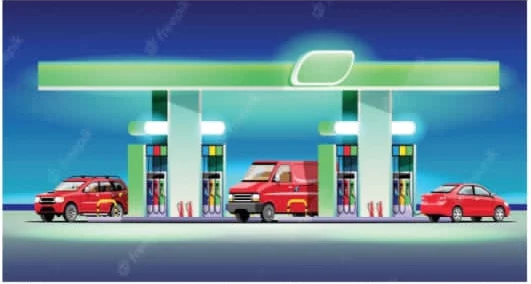Over the decades, Nigeria’s fiscal health has been undesirable. Among other factors, a growing number of economists said Nigeria needs to implement full deregulation as enshrined in the Petroleum Industry Act (PIA) to enjoy some degree of fiscal health.
But there are inherent discrepancies in the petroleum industry law that inhibits full deregulation of the petroleum industry. Those hurdles need to be cleared before complete deregulation can be achieved for fiscal health to return.
One of such hurdles, according to industry operators, is the absence of a level playing field in the downstream sector. Interested persons said the government must allow marketers easier access to foreign exchange and fix a provision in the law giving only refiners the right to import products.
For deregulation to benefit ordinary Nigerians, there must be competition, but that will be stifled if the provision restricting independent importers from importing petrol in the Petroleum Industry Act (PIA) does not make way and the gap between the official market and parallel market rate does not narrow.
They said both factors will impact negatively on margins of private marketers and also make sure they are still tied to the apron strings of state-oil company, Nigerian National Petroleum Corporation (NNPC).
“We are still immersed in a monopolistic structure,” Dr. Muda Yusuf, the immediate past director-general of the Lagos Chamber of Commerce and Industry (LCCI), and chief executive of the Center for the Promotion of Private Enterprise (CPPE) said.
“The economy and the citizens cannot get the benefit of deregulation if the government cannot solve the wide differential between the official exchange rate and parallel market,” Yusuf said. “This development will continue to tie most private marketers to the operator’s apron strings which is unhealthy for price competition,” he added.
Section 205 (1) of the PIA states that: “Wholesale and retail prices of petroleum products shall be based on unrestricted free-market pricing conditions.”
Yet Section 317 (8) of the same law said that “The Authority shall apply the Backward Integration Policy in the downstream petroleum sector to encourage investment in local refining.”
“To support this, a license to import any product shortfalls shall be assigned only to companies with active local refining licenses,” it said.
Ben Atuma, an economist and social affairs analyst said the provision “will simply enrich a small group of importers, discourage new market entrants and hold Nigerians to ransom.”
Analysts at FSDH Capital Limited, a subsidiary of FSDH Holding Company Limited said the current industry structure will continue to squeeze profitability, and deter new investment despite the signing of PIA.
“We think the fate of the downstream sector will continue to hang by the slimmest thread. Until the sector is completely deregulated,” FSDH said in its report.
Some other experts said without fixing these bottlenecks Nigeria’s downstream sector will continue to struggle with challenges ranging from undue government interference, to low operating margin for operators leading and low Return On Equity (ROE).
According to a PWC report, there are significant challenges in the industry, such as damaged pipelines and the absence of an effective logistics infrastructure which hampered growth within the downstream petroleum sector. NNPC and its sub-business units’ function as government parastatals suffer from low maintenance of assets or oil infrastructural such as refineries, frequent breakdowns of pipelines and depots, inadequate funding, inadequate commercial incentives for investment in the sector. Significant red-tapism and lengthy administrative processes for securing necessary regulatory approvals in the sector with the slow pace of infrastructural expansion, limiting the growth of the oil industry, under-investment and decayed oil infrastructure, has affected development in the sector.
Other impediments to complete deregulation of Nigeria’s downstream petroleum are corruption, poor fuel subsidy management, and inefficient downstream petroleum regulatory authorities to enforce the legal framework regulating Nigeria’s downstream petroleum. Also, the differences in cost of fuel importation to Nigeria by the various independent oil marketers, the inefficiencies of petrol price control mechanisms or modules in the sector, bad government and bad leadership are the current factors militating against the deregulation of the Nigerian downstream petroleum sector.
Aside from the inherent discrepancies in the law, the Nigerian government has reached a stage where it can no longer afford a regulated fuel market through subsidies. But which government will muster up the courage to remove fuel subsidies. While the four major contenders for the presidency of the 2023 election said they will remove petrol subsidy, none have said how they will achieve it, even though the Petroleum industry Act (PIA) backs the removal of subsidy.
It is because fuel subsidy is not just an issue about sentiment; it is about survival. With 63 per cent of Nigerians enduring multidimensional poverty (133 million people), many may not be able to survive the rate of inflation that may ensue from subsidy removal.
While many argue that Nigerians were able to cope with the removal of subsidy on diesel and kerosene, petrol earns a different level of importance in the energy needs of Nigerians than the former. To put it into context, when subsidy on kerosene was removed, the government literally provided a better alternative so that only a minute percentage of Nigerians felt the subsidy removal. Most Nigerians simply transited to cooking gas as alternative energy source, which is better. Currently, not many Nigerians want to use kerosene; it is a dirty energy source.
But although the price of diesel was affordable by many Nigerians, especially corporate organisations that use it more often than ordinary Nigerians,would not forget in a hurry that when the Russia-Ukraine war started in late February 2022, the price of diesel shot up by up to 200 per cent, which resulted in manufactured and agricultural goods rising steeply northward, to the point where bread, the common man’s food, rose by more than 150 per cent in six months, putting the product out of reach of many poor people.
Petrol subsidy removal would spike prices of goods and services much more broadly because virtually every Nigerian makes use of the product to produce and consume goods and services. It is not just for transportation; the barber, hair dresser, tire repairer, block molder, hospitals, schools, to name just a few, will adjust prices to reflect the increased prices of fuel.
Speaking on the issue, former director-general at the West Africa Institute for Financial and Economic Management (WAIFEM) and Chairman of the Foundation for Economic Research and Training, Professor Akpan Ekpo, said there ought to be a gradual phasing out of the subsidy as it would have an adverse effect on the economy.
He noted that the impact of subsidy removal will be felt by both demand and supply, with more emphasis on the demand side. “For me, once you touch the fuel price, it affects every other commodity, all prices will go up. We call that structural inflation.
“So, I will advise that it should be phased out and the money you would have paid for subsidy, you use for infrastructure development, education, health, roads, etc., but it should be phased out,”he explained.
On his part, however, head of research, Agusto & Co, Mr. Jimi Ogbobine, noted that the economic implication of the fuel subsidy “is that we spend over N1 trillion every year on fuel subsidy. Asides this, the oil and gas industry is losing money, particularly the downstream because it leads to constriction of investment in that sector and constriction of investment leads to weaker profitability of the industry, which also affects what the government will earn in taxes.
The group managing director, Rainoil Limited, Dr. Gabriel Ogbechie, said the country stands to save over 12 trillion naira from fuel subsidy removal, which could be channeled for other areas of development for the country if the downstream sector is fully deregulated.
He said the global average price currently for Premium Motor Spirit (PMS) is N516 per litre, which is way higher than the N175 per litre it is being sold in Nigeria and called on government to not only deregulate but also initiate a petrol tax to fund maintenance and construction of critical infrastructure across the country.
On fuel subsidy removal, he noted that Nigerians are not adverse to subsidy removal, but noted that PMS consumers only want some level of reassurance on the subject matter, and the cushioning effects by government.
On his part, the chief executive of the Center for the Promotion of Private Enterprise (CPPE) Dr. Muda Yusuf, observed that the whole subsidy story has become a political economy matter. It was shifted from the realm of economics and investment to the political realm.
Yusuf, however, observed that sentiments among the citizenry are not favourable to the deregulation of petroleum product pricing or petrol subsidy removal and even some elites are curiously not persuaded on the justification for the subsidy removal.
He warned that if the policy transition is not properly managed, the risk of a social and political backlash could be quite high.
“No doubt there is a sound economic and business case in favour of fuel subsidy removal but the social and political contexts are equally critical.
“Certainly, the subsidy is not sustainable, which is why there is need to accelerate engagement with the relevant stakeholders to come up with a policy transition strategy that is sustainable, realistic, and pragmatic. The conversation should not only be economic, but also social and political.”
To get it right, Yusuf said the government should expeditiously address the ongoing rehabilitation of the refineries.
“Domestic refining of petroleum products will ease the currently prohibitive cost of petroleum products which is largely a consequence of our vulnerability to volatilities in global oil price and currency depreciation. The Dangote Refinery should also be supported to ensure early completion.
“Meanwhile there should be an urgent engagement with stakeholders to allow for a slight adjustment in price in the light of the inflationary impact on petroleum downstream operations. The full deregulation may not happen at this time because of the enormity of the potential shocks on the citizens and the current political context,” he stated.





